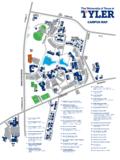Transcription of The Tethered Generation - gendiff.com
1 The Tethered Generation With access to technology since a young age and a perpetual connection to parents, the millennial Generation brings new challenges to the workplace. By Kathryn Tyler At 11 years old, Kate Achille had a pager for her parents to reach her when necessary. At 13, she had a cell phone. Now 22 and working for a school, she e-mails her mother as many as five times a day and calls her on the cell phone several times a week. Her mother, Jeanne Achille, CEO of Shrewsbury, , public relations firm The Devon Group, says technology allows her to communicate regularly with Kate and her other daughter, who is 18.
2 I know where my daughters are constantly because we use these communications technologies to update each other: I'm still at work,' I'm going to the gym,' I'm picking up dinner,' etc. I would have never given my parents visibility into this level of detail in my day! she admits. But this is a different day. Kate Achille and her sister are part of the so-called millennial Generation , now ages 8 to 29. This group, also called Generation Y and the Net Generation , is made up of 80. million people in the United States born between 1978 and 1999.
3 They are the first Generation to use e-mail, instant messaging (IM) and cell phones since childhood and adolescence. Especially as millennials born since 1985 begin to show up in the workforce, HR professionals and psychologists are just beginning to see what effect the constant tethering to technology has had on the way millennials work, communicate, make decisions and interact. That effect, along with a Tethered relationship to their peers and parents sometimes to the extent that they have been deemed helicopter parents presents challenges for HR professionals integrating millennials into the workplace.
4 For those who remember life without cell phones and the Internet, it may be difficult to understand how ingrained technology is in millennials' lives. To prepare for millennials, it's important to understand how cell phones and computers have changed their brain development, the enormous role their parents play in their lives well into adulthood, and what policies and training programs HR. professionals will need to implement to transition these young people into the workplace. Millennial Connectivity Older generations that couldn't wait to proclaim their independence can't comprehend this Generation 's need for parental guidance and influence.
5 Years ago, most college dorm rooms had one land line, and, if parents were lucky, kids called home once a week. Now, students may be going across the country, but they call their parents on the cell phone three to five times per day, says Claire Raines, author of Generations at Work (AMACOM, 2000). Another big influence on this Generation is their peers. While previous generations also looked to their friends for advice and direction, today's technology allows a perpetual connection to peers, leaving little time for autonomy. Except for their mothers, these kids don't have relationships with people outside of their Generation .
6 They spend 72 hours per week of connected time by phone and IM . seeking advice and input on the smallest decisions, says Jim Taylor, a futurist, author and vice chairman of Waterbury, The Harrison Group, a marketing consulting and research services firm, which has consulted for large companies on tapping the teen market. What could be wrong with young people using cell phones and IM to keep mom and dad abreast of their every move? New research reveals a lot. Scientists once believed the brain was almost completely formed by age 13. But, in the past two years, neuroscientists have discovered that parts of the brain specifically the prefrontal lobes, which are involved in planning and decision-making continue to develop well into the late teens and early 20s.
7 The prefrontal cortex is important for decision-making, planning, reasoning and the storage of knowledge, explains Jordan Grafman, chief of the Cognitive Neuroscience Section at the National Institute of Neurological Disorders and Stroke in Bethesda, Md. That means millennials' brains are still developing reasoning, planning and decision-making capabilities while they are depending heavily on technology cell phones, IM and e-mail as well as parents and friends at the other end of the technology. As a result, some experts believe millennials struggle to make decisions independently.
8 When parents give teens cell phones, it's a double-edged sword. On the one hand, this arrangement gives the adolescent new freedoms. On the other, the adolescent doesn't have the experience of having only herself to count on; there's always a parent on speed dial, says Sherry Turkle, licensed clinical psychologist and professor of the social studies of science and technology at the Massachusetts Institute of Technology in Cambridge. Stephen P. Seaward, director of career development for Saint Joseph College in West Hartford, Conn., agrees.
9 The majority of millennials never experienced life without a microwave, computer, ATM card or television remote control. Many had their first cell phones in their early teens with parents footing the bill, he says. This instantaneous gratification may have fostered unrealistic expectations with respect to goal-setting and planning. That, in conjunction with extreme parental influence, can prohibit creative problem-solving and decision-making.. A 2006 research report bears this out. Roughly three-quarters of executives and HR managers at 400.
10 Companies surveyed said that recent four-year college graduates displayed only adequate . professionalism and work ethic, creativity and innovation, and critical thinking and problem-solving. Only one-quarter reported an excellent display of those traits in recent college graduates, according to Are They Really Ready to Work?, a report by the Society for Human Resource Management, The Conference Board, Corporate Voices for Working Families and the Partnership for 21st Century Skills. Helicopter Parents While technology has enabled children's dependency, it has also abetted parental oversight, making it easier for overbearing parents to hover well into adulthood.




